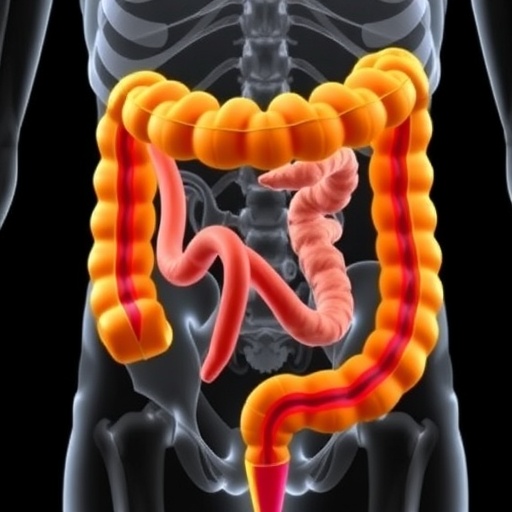A groundbreaking study conducted by researchers at the Germans Trias i Pujol Research Institute (IGTP) has been published in the prestigious journal Scientific Reports, marking a significant advancement in the field of cancer biology and tumor modeling. The study presents a comparative analysis of widely-used three-dimensional (3D) culture techniques aimed at generating multicellular tumor spheroids (MCTS), specifically focusing on colorectal cancer. This meticulous investigation, led by the Cancer Genetics and Epigenetics (CGE) group at IGTP, and featuring Dr. Sergio Alonso and Dr. Beatriz González as corresponding authors, addresses the growing need for robust and standardized protocols that can better mimic the complex tumor microenvironment in vitro.
In recent years, 3D tumor models such as multicellular spheroids have revolutionized cancer research by providing a system that closely reproduces the heterogeneity and architecture of solid tumors. Unlike traditional two-dimensional (2D) cultures, 3D spheroids exhibit gradients of oxygen, nutrients, and metabolites, alongside dynamic cell-cell and cell-matrix interactions, offering a biologically relevant platform to study tumor behavior, drug sensitivity, and resistance mechanisms. However, the lack of standardization in spheroid formation techniques has been a critical bottleneck limiting reproducibility and translational relevance, a challenge that this IGTP study directly confronts.
The researchers systematically examined three prevalent methods for generating MCTS: liquid overlay, hanging drop, and U-bottom plates. Their comprehensive evaluation spanned eight colorectal cancer cell lines, reflecting the molecular and phenotypic diversity observed in patients. These methods were tested across various extracellular matrices, including Matrigel, collagen I, and methylcellulose, to determine how matrix composition influences spheroid morphology and compaction. Through quantitative imaging and morphological assessments, the team unveiled that both cell type and culture conditions profoundly impact spheroid architecture, emphasizing the complexity behind in vitro modeling of colorectal tumors.
.adsslot_jpWXGy7Alz{ width:728px !important; height:90px !important; }
@media (max-width:1199px) { .adsslot_jpWXGy7Alz{ width:468px !important; height:60px !important; } }
@media (max-width:767px) { .adsslot_jpWXGy7Alz{ width:320px !important; height:50px !important; } }
ADVERTISEMENT
One of the landmark outcomes of the study is the description of a novel compact spheroid model derived from the SW48 cell line. Historically categorized as non-spheroid-forming, SW48 has posed challenges for investigators aiming to establish 3D models that accurately recapitulate tumor biology. By optimizing culture parameters, the IGTP group demonstrated that SW48 cells could indeed form compact spheroids, expanding the repertoire of colorectal cancer models amenable to 3D culture-based investigations.
Importantly, the study highlights a cost-effective innovation: the application of an anti-adherent treatment to standard culture plates significantly improves spheroid formation, serving as a scalable alternative to expensive commercially available cell-repellent plates. This methodological refinement not only reduces barriers to widespread adoption but also promotes consistency across laboratories, thereby enhancing the comparability of experimental outcomes in preclinical cancer research.
Beyond monocultures, the IGTP team also explored the incorporation of colonic fibroblasts into co-culture spheroid systems. This addition underscores the significance of the tumor microenvironment, specifically tumor-stroma interactions, as fibroblasts play a crucial role in modulating cancer progression, extracellular matrix remodeling, and response to therapies. Their inclusion in 3D models elevates biological relevance, providing a more accurate simulation of in vivo conditions and better predictive value for translational studies.
Another intriguing discovery relates to morphological disparities observed between isogenic colorectal cancer lines, notably DLD1/HCT8 and SW480/SW620 pairs. Despite genetic similarity, differences in spheroid compactness and structure suggest that epigenetic or transcriptional regulation may be pivotal in shaping 3D tumor architecture. This insight opens avenues for further mechanistic studies into the molecular determinants of spheroid formation and stability, potentially revealing novel therapeutic targets.
The comprehensive nature of this study stems from months of systematic optimization and methodological rigor. As Dr. Sergio Alonso, last and corresponding author, emphasizes, this work aspires to serve as a practical guideline for researchers working with tumor spheroid models, fostering the harmonization of protocols that are currently diverse and fragmented. By addressing these technical disparities, the study paves the way for more robust, reproducible, and clinically relevant colorectal cancer research.
Given the increasing emphasis on precision medicine, this advancement holds promise for better predictive modeling of drug responses and resistance mechanisms. Three-dimensional spheroid cultures offer a platform compatible with high-throughput drug screening and mechanistic studies, thus expediting the preclinical evaluation pipeline for novel therapeutics targeted at colorectal cancer, a malignancy that remains a leading cause of cancer morbidity and mortality worldwide.
Furthermore, the integration of various matrices closely mimics the tumor’s extracellular environment, influencing not only physical characteristics but also cellular signaling pathways. This aspect is critical as the extracellular context can modulate gene expression, metabolic orientation, and ultimately treatment efficacy. The study’s stratified analysis of matrix effects provides a valuable framework for selecting culture conditions aligned with specific research goals, whether focusing on tumor biology or therapeutic evaluation.
In conclusion, the IGTP study represents an innovative and timely contribution that bridges technical refinement with biological insight. By championing standardized 3D culture methodologies and demonstrating novel spheroid models for colorectal cancer research, this work equips the scientific community with refined tools to capture tumor complexity and translate findings into meaningful clinical impact. The study’s implications transcend colorectal cancer, offering foundational approaches adaptable to other tumor types where 3D culture models are indispensable.
As the cancer research landscape evolves rapidly, such detailed comparative analyses foster collaborative efforts and accelerate discovery, ensuring that laboratory models keep pace with the intricacies of human disease. With growing interest in tumor microenvironment modeling, co-culture systems, and epigenetic regulation of tumor heterogeneity, studies like this mark the frontier of in vitro cancer modeling, setting new standards for experimental rigor and translational relevance.
Subject of Research: Cells
Article Title: Comparative analysis of 3D-culture techniques for multicellular colorectal tumour spheroids and development of a novel SW48 3D-model
News Publication Date: 29-Jul-2025
Web References: https://doi.org/10.1038/s41598-025-13588-x
Image Credits: IGTP
Keywords: Colorectal cancer, Cancer, Cell cultures, Three dimensional modeling
Tags: 3D tumor modeling techniquescancer genetics and epigenetics studiescolorectal cancer research advancementsDr. Beatriz González scientific findingsDr. Sergio Alonso research contributionsdrug sensitivity and resistance in cancerheterogeneity in solid tumorsin vitro cancer modeling challengesmulticellular tumor spheroids developmentScientific Reports publication in cancer biologystandardized protocols for cancer researchtumor microenvironment simulation





